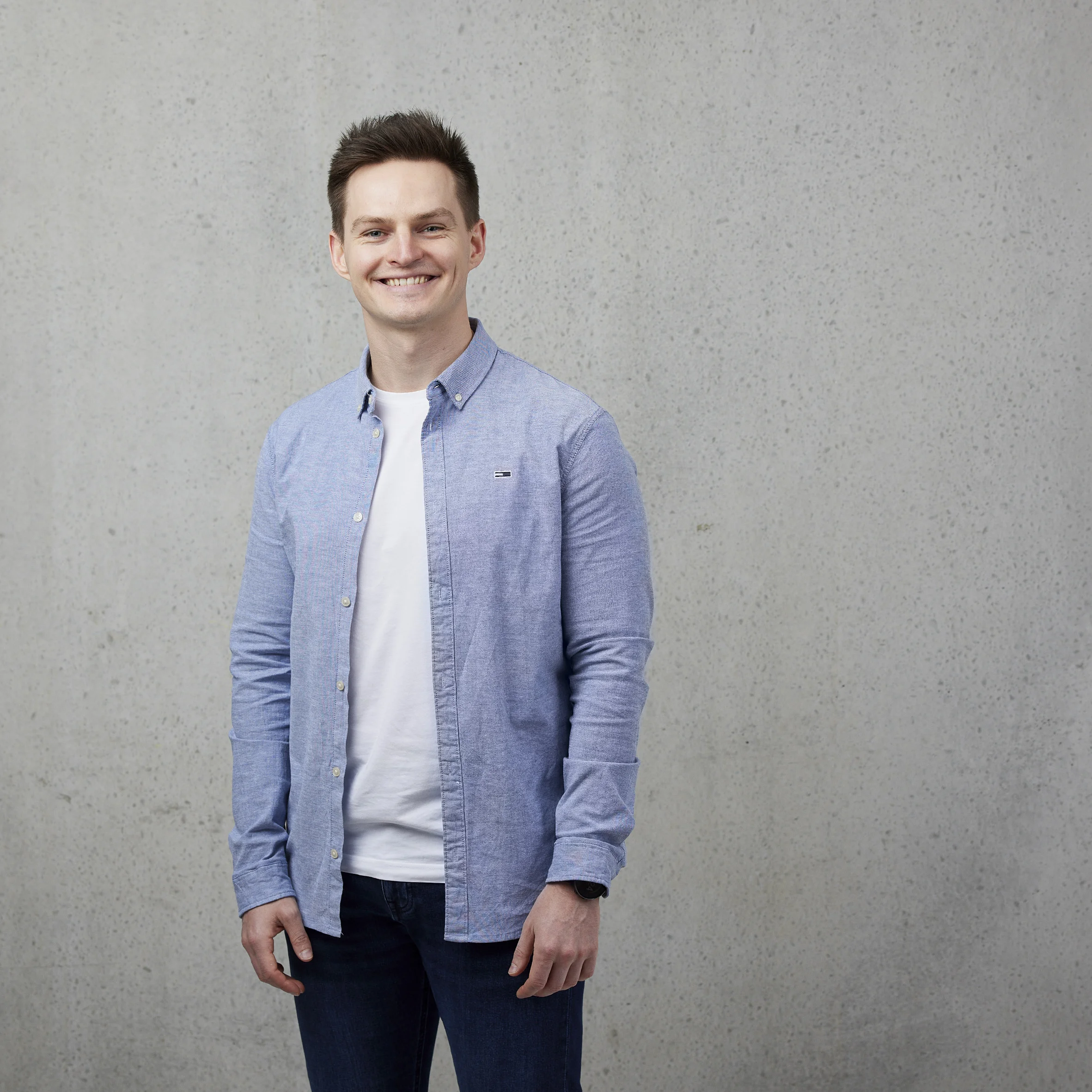AIT India 2025/26: Skaaltec
Meet Paulius Viskaitis, one of the ten participants in the 2025/26 edition of the Academia-Industry Training India programme.
Interview with Paulius Viskaitis

“At Skaaltec we are building SmartVNS, a wearable device that helps stroke survivors in their recovery. Strokes often leave people with lasting difficulties, and existing therapy is hard work that can plateau too soon. We want to give people something that fits into their daily lives and helps them keep improving.”
What problem does your startup solve, and why is it important to you personally?
At Skaaltec we are building SmartVNS, a wearable device that helps stroke survivors in their recovery. Strokes often leave people with lasting difficulties, and existing therapy is hard work that can plateau too soon. We want to give people something that fits into their daily lives and helps them keep improving. For me, it is about more than technology. I have always been fascinated by how ideas from basic neuroscience can move out of the lab and change real lives.
What inspired you to become a sciencepreneur, and what has been your biggest “aha!” moment so far?
I chose this path because I did not want research to stay in journals. I wanted to see it reach people who could benefit from it. My biggest “aha” moment came when I understood that small steps add up. I learned this lesson through years of sport and training, and I now see the same truth when patients use our device. Little changes, repeated day by day, make a real difference.
What unique perspective does your academic background bring to your startup?
My background in neuroscience gives me a strong understanding of how the brain adapts and how stimulation can support recovery. Just as important, my own journey: growing up in Lithuania, studying and working in the UK and Switzerland, and being involved in many different sports, music bands and communities, have taught me to value people’s experiences and listen closely to their needs. From the very beginning in 2023, stroke patients have been key players in the design of SmartVNS at every step, from how the device feels to how it fits into daily life. I believe this combination of scientific insight and patient-driven design is what makes our approach different.
What’s one surprising lesson you’ve learned since launching your startup?
I thought progress would come in leaps. Instead, I discovered that it feels more like stroke rehab itself. It takes patience, resilience, and steady work. That lesson surprised me at first, but it has kept me grounded whenever things get tough.
If you could host a dinner with three innovators (past or present), who would they be and why?
I would love to sit down with Santiago Ramón y Cajal. I’d like him to give me tips on drawing and to learn about how he saw the brain’s ability to change long before it was proven. I would invite Emmy Noether to teach me about her unparalleled way of thinking in deep first principles and grasping underlying truths. And I would invite Richard Feynman to have fun, to listen to his stories, and to try to absorb his ability to make science human, playful and graspable – the way he made real understanding come from doing, not just thinking.